"Technik zum Anfassen"
n 29 September, the CASCADE project will participate in the 'Technology to Touch' event in Witzenhausen, North Hesse, Germany, from 11:00 to 17:00. This interactive event, co-organised by the University of Kassel and blinc, invites the public to explore cutting-edge technologies in the field of biochar and the circular carbon economy and offers citizens, local communities and projects an exciting opportunity to engage with sustainable innovation.
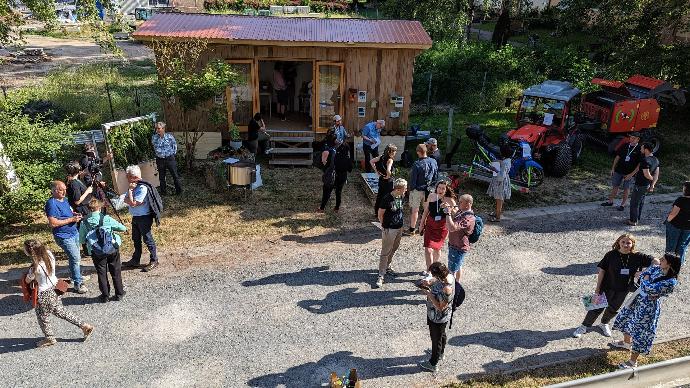
A highlight of the event will be the mobile demonstrator. Developed as part of the THREE C project (Creating and Sustaining Charcoal Value Chains to Promote a Circular Carbon Economy in Northwest Europe), this compact, mobile unit demonstrates the entire biochar production process - from biomass collection and conversion to the production of biochar-based products. The demonstrator is designed as a fully modular exhibit and provides a hands-on approach for citizen scientists to understand the circular carbon economy.
Visitors will have the opportunity to explore how residual biomass can be converted into carbon negative products to help sequester CO2 and mitigate climate change. Through a series of interactive exhibits, participants will be able to experience how biochar can be used in different sectors such as agriculture, horticulture, environmental technologies (e.g. filters) and construction.
Key Exhibits to explore
In addition to the mobile demonstrator, CASCADE will also present a number of innovative exhibits that highlight the versatility of biochar and circular carbon applications. Some of the exhibits that will be on display include:
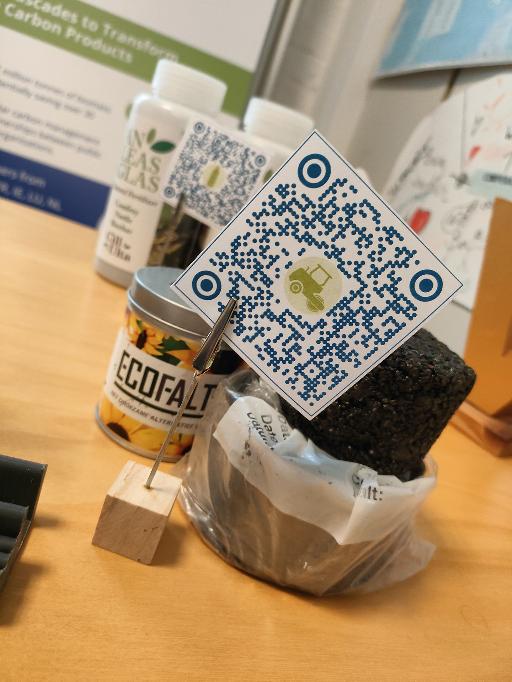
Ecofalt
Ecofalt and Charcofalt: Discover Ecofalt, a sustainable alternative to traditional hot mix asphalt that is cold-produced and results in a 100% reduction in gas consumption and CO2 emissions. When combined with biochar, it creates Charcofalt, an asphalt mix that has a potentially carbon positive footprint and stores more carbon when applied. This project aims to demonstrate that road surfaces can become a tool for carbon sequestration.
Biochar Natural Fertiliser
Cill Ulta An Leas Glas: This exhibition features a prototype of a natural fertiliser developed as part of the Cill Ulta collaborative project. Biochar is processed with comfrey and nettle to produce a slow release fertiliser. This not only promotes soil health but also biodiversity, providing a sustainable solution for local agriculture while protecting endangered species.
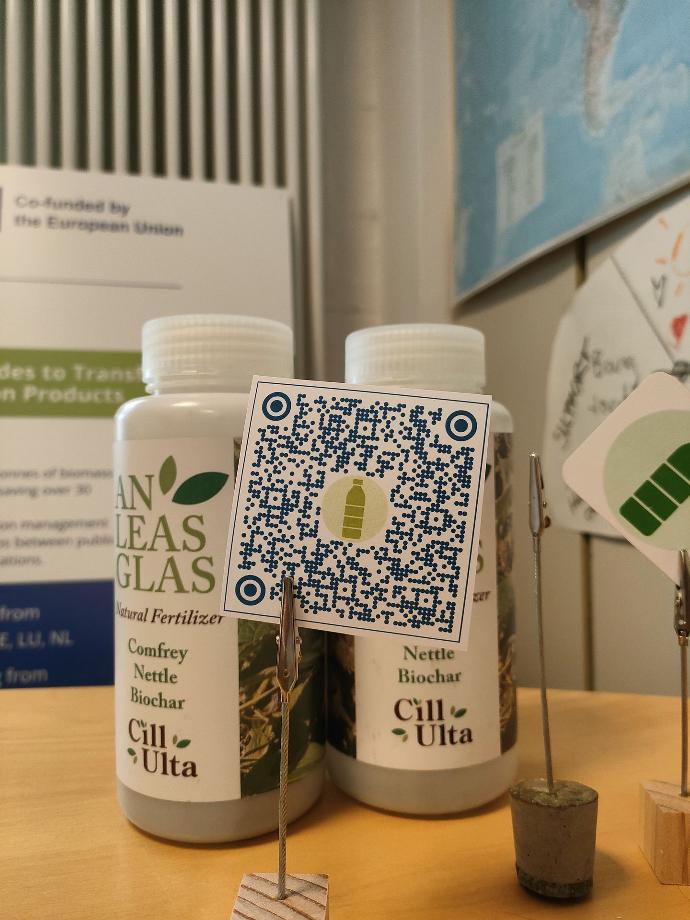
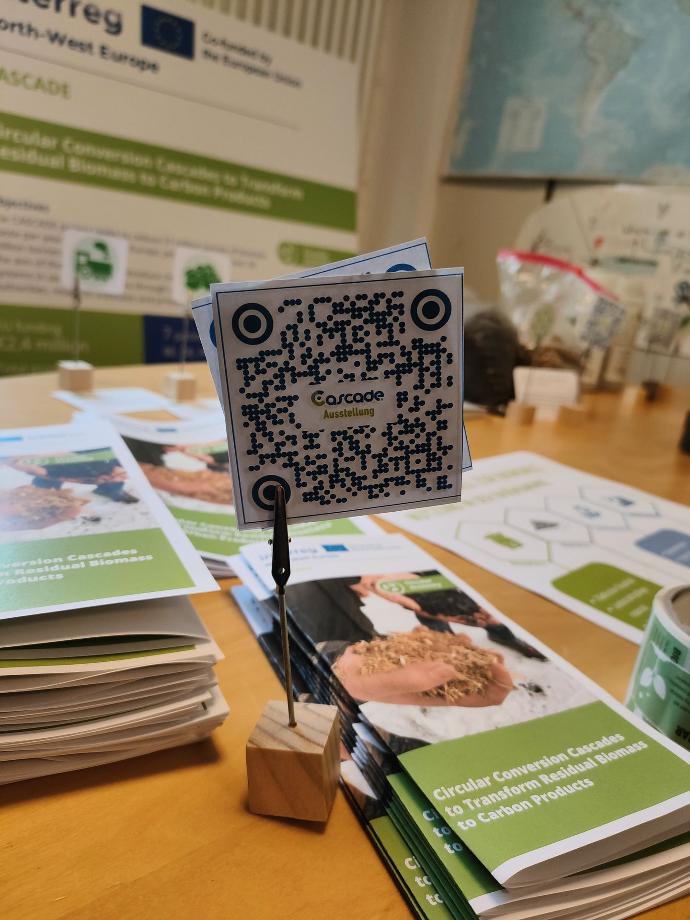
Rainwater harvesting wells
With climate change, flooding in urban areas due to heavy rainfall is becoming more common. The Rainwater Well exhibit features a prototype system that filters polluted rainwater through a biochar-based filter, allowing cleaner water to reach the ground.
3D printing with biochar-reinforced concrete
Combining advanced 3D printing technology with biochar, this exhibit demonstrates how biochar can improve the sustainability of concrete. From increased durability to reduced carbon footprint, visitors can see how the Burren Bench - inspired by Ireland's Burren landscape - can act as a carbon sink while supporting plant life through biochar-enriched substrates.
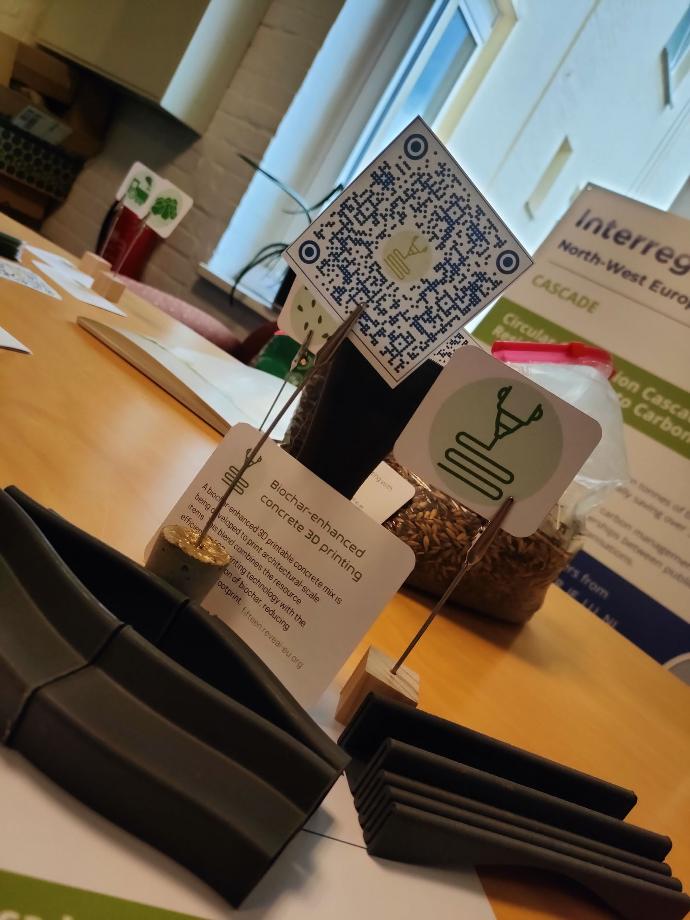
A platform for learning and engagement
The CASCADE project's presence at Hands-on Technology will not only highlight the potential of biochar, but also demonstrate its application in real-life projects. The interactive exhibits will be accompanied by digital resources such as videos, factsheets and background information, giving visitors a deep insight into the circular economy of carbon. Whether you are a citizen interested in sustainable gardening, a business owner looking for green alternatives, or a decision-maker looking for climate solutions, this event will provide inspiration and practical knowledge.